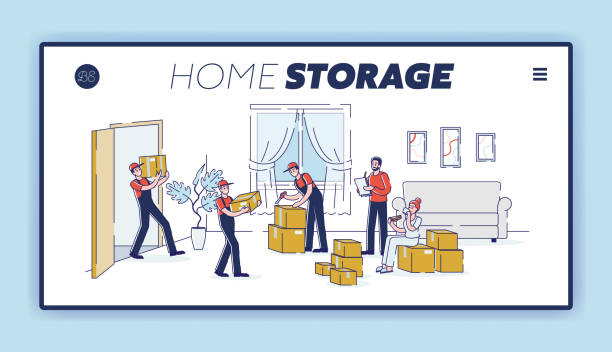As housing insecurity rises, many individuals turn to storage units as makeshift homes. This isn’t just a temporary fix; it raises serious concerns about safety and well-being. To tackle this issue effectively, you need to consider a multi-faceted approach. From improving affordable housing to enforcing stricter regulations on storage facilities, there are several strategies that can help. Let’s explore these solutions and understand how they can make a difference.
Contents
Improve Access to Affordable Housing Options
To tackle the issue of renters ending up in storage units, improving access to affordable housing options is crucial.
You might wonder, can you live in a storage unit? While some may resort to this desperate measure, it’s vital to recognize the signs someone is living in a storage unit, such as makeshift bedding or personal belongings scattered around. Providing more affordable housing can prevent these situations, ensuring people have a safe place to call home.
If you find yourself needing to know how to evict someone living in a storage unit, consider the legal implications and the human impact first.
Enhance Tenant Support Services
Enhancing tenant support services can significantly reduce the likelihood of renters resorting to storage units. By offering personalized assistance, you can help tenants navigate challenges like job loss or unexpected expenses.
Establishing regular check-ins fosters a sense of community and allows you to identify issues before they escalate. Providing access to resources such as mental health services or emergency assistance can also empower renters, making them feel supported and less isolated.
Additionally, organizing workshops on tenant rights and responsibilities can equip renters with the knowledge they need to advocate for themselves.
Increase Financial Literacy and Budgeting Resources
Building on the support services already in place, increasing financial literacy and budgeting resources can empower renters to take control of their finances.
By offering workshops and online courses, you can learn essential skills like budgeting, saving, and managing debt. Understanding your income and expenses helps you make informed decisions about housing and other necessities. Access to tools like budgeting apps can simplify tracking your spending and setting financial goals. Additionally, providing one-on-one financial counseling can address specific concerns and create personalized plans. When you feel more confident in your financial knowledge, you’re less likely to rely on storage units as a living solution.
Ultimately, financial literacy is key to achieving housing stability and improving your overall quality of life.
Foster Community Engagement and Housing Advocacy
While many individuals seek stable housing, fostering community engagement and housing advocacy can make a significant difference in their lives. You can start by connecting with local organizations focused on housing issues.
Attend community meetings and share your experiences to raise awareness about the challenges renters face. Collaborate with neighbors to create support networks that can help those in need find affordable housing options.
Advocating for policies that prioritize housing stability is crucial. Work with local leaders to push for resources that support renters, like emergency funds or housing assistance programs.
Implement Strict Regulations on Storage Facilities
To effectively prevent renters from relying on storage units as a long-term solution, implementing strict regulations on storage facilities is essential. You can advocate for limits on how long tenants can store their belongings and require storage companies to monitor occupancy.
Mandating regular inspections will ensure units aren’t being misused as living spaces. Additionally, you should push for transparency in rental agreements, clearly outlining prohibited activities, including overnight stays. Establishing penalties for facilities that violate these regulations can deter non-compliance. By holding storage providers accountable, you not only protect renters but also promote better housing options.
Ultimately, these regulations can create a safer, more sustainable community for everyone involved.
Conclusion
By implementing these five strategies, you can help prevent renters from living in storage units and promote stable housing solutions. Supporting affordable housing access, enhancing tenant services, boosting financial literacy, fostering community engagement, and enforcing regulations on storage facilities will create a safer, more secure environment for everyone. Together, we can address the root causes of housing insecurity and ensure that everyone has a place to call home. Let’s take action and make a difference!

